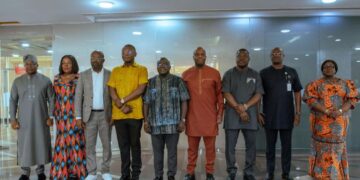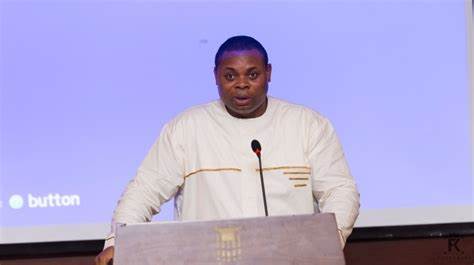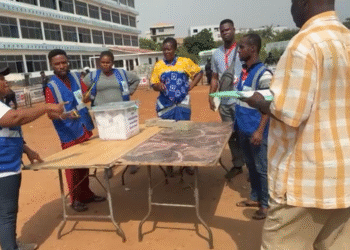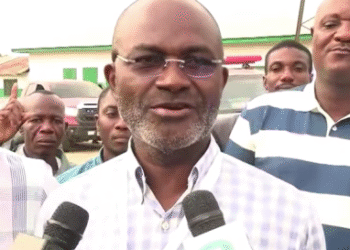Frankline Cudjoe, Founding President of IMANI Centre for Policy and Education, has voiced serious concerns about the credibility of Ghana’s voters’ register ahead of the crucial 2024 general elections. In a detailed post on his Facebook page, Cudjoe questioned the preparedness of the Electoral Commission (EC) to deliver a credible register, citing multiple systemic failures that have emerged in recent months.
According to Cudjoe, the EC’s voter registration processes have been riddled with technological glitches and inefficiencies, raising doubts about whether the electoral body can ensure a fair election. He pointed to issues such as malfunctioning biometric machines, delays in publishing the provisional voters’ register, and the failure to remove duplicate names despite utilizing advanced biometric software, including the globally recognized MegaMatcher system.
Cudjoe’s concerns echo those of IMANI’s Vice President, Bright Simons, who has been vocal about the EC’s procurement abuses in 2020, accusing it of inflating the cost of the biometric software purchased from the Lithuanian firm, Neurotechnology. Despite these issues being raised years ago, it appears that the root causes have not been addressed.
In his post, Cudjoe emphasized that the EC had almost four months to clean up the voters’ register after the mass registration exercise ended on May 27, 2024, but significant errors and inconsistencies remain. These include duplicate entries and unaddressed multiple registrations, which were supposed to be resolved before the register’s exhibition in August.
The delays and technological failures, Cudjoe argues, could undermine the credibility of the 2024 elections. He and other stakeholders continue to demand greater transparency and accountability from the EC, calling for a full audit of the commission’s procurement processes and a thorough examination of its handling of the voters’ register.
As Ghana gears up for its next general election, concerns over the EC’s ability to manage a credible and error-free election are mounting, with IMANI remaining at the forefront of the advocacy for electoral reforms. Whether the commission will address these concerns before the election day remains to be seen.




































